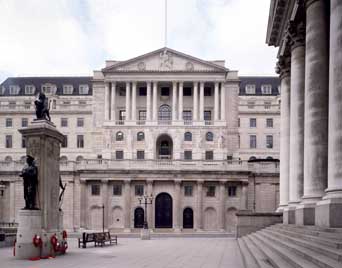Legal experts have suggested that pension trustees should focus their energy and legal costs on the operational issues that the liability-driven investment (LDI) liquidity crisis exposed, rather than concerns around the legality of some aspects of LDI.
The comments were made in light of concerns raised as part of the Work and Pensions Committee's (WPC) inquiry into LDI and defined benefit (DB) schemes, with evidence suggesting that the "use of derivatives to hedge liabilities is also almost certainly illegal", based on the UK's transposition of the European directive.
In the hearing, Brighton Rock Group head of research, Con Keating, stated: “The European directive limits the use of derivatives for investment purposes, for investment risk management.
"The UK transposition omitted the word ‘investment’ and added a second line, which appears to permit this. No English court, to our reckoning, would support that transposition....The use of derivatives to hedge liabilities is also almost certainly illegal.”
The WPC has also since been in correspondence with the Department for Work and Pensions (DWP) on this issue, with Pensions Minister, Laura Trott, recently confirming that the change was made to the directive in response to feedback on the consultation held at the time, in which the DWP explicitly set out that it wanted to allow derivatives and repos.
The Pensions Regulator (TPR) also said that it was "confident" in its contention that repos are not borrowing when pressed on the issue during recent parliamentary inquiries, emphasising that its interpretation of regulation 5 of the 2008 investment regulations was informed by the analysis of its in-house legal team.
Indeed, despite the concerns, Squire Patton Boggs pensions partner, Clifford Sims, suggested that some of the critics of LDI have perhaps ignored the wholesale reform of the derivatives market that happened in the wake of the Global Financial Crisis (GFC) of 2008-9, which aimed to address systemic risks in the banking sector by introducing central clearing of trades and strengthened margin or collateral requirements.
Speaking to Pensions Age, Sims suggested that if trustees did not have the legal power to enter into the complex financial instruments used in LDI strategies, most DB trustees would have “some serious soul-searching to do”.
“The absence of a power to do something raises the spectre of acting in breach of trust and the risk of uncertainty about contractual obligations which is absolutely central to agreeing any contract, let alone a high-value investment derivative contract with millions of pounds at stake,” he said.
Looking back, however, Sims says that a “basic statutory power to use derivatives could be established as far as 1997”.
Echoing TPR’s recent reasoning, Sims also highlighted the 2005 investment regulations, that were brought in under the Pensions Act 2004 to ensure that the UK complied with the IORP I Directive, arguing that these gave “clear authority by which pension funds may use derivatives”.
“LDI as an investment strategy was built on these statutory rocks of risk reduction and efficient portfolio management”, he continued, explaining: “Initially there was no linkage to borrowing in such arrangements but leveraged LDI funds became popular when LDI managers and investment consultants created pooled fund structures to capture enhanced returns from return-seeking asset classes in other structures.
“That made sense, especially in the low interest rate environment that followed the GFC, but in the wake of the September mini-Budget that created the liquidity crisis, it begs the question again about whether any borrowing was indeed temporary and for liquidity only.
“At one level, such an analysis will always be fact specific. But it is important to ask who was actually doing the borrowing too. Where a pension scheme uses an LDI pooled fund solution, the counterparty to any derivative transaction that has been entered into will be that fund, not the scheme. That principle applies to all financial instruments.”
Asked whether schemes conducting reviews of their LDI programmes should worry about having run the risk of acting illegally in entering into derivative transactions under an LDI mandate, Simms said “that seems both an extremely remote risk but also one where, classically, trustees should be careful what they wish for”.
Instead, Sims suggested that it may be better for scheme trustees to spend their energy, and legal costs, on the operational issues that the LDI liquidity crisis exposed.
In particular, he encouraged trustees to consider whether they understand what they are investing in, whether communications between managers, trustees and their advisers were clear, and whether improvements can be made to execution of instructions, e.g. by use of powers of attorney.
Latest News
-
OBR analysis reveals potential impact of salary sacrifice changes
-
Strong funding levels continue as endgame landscape reshaped by innovation
-
Harwich Haven Authority Pension Fund finalises £45m buy-in with Royal London
-
GAD publishes LGPS gender pension gap reporting guidance
-
DB scheme funding levels continue to improve heading into 2026
-
News in brief - 6 February 2026
Private markets – a growing presence within UK DC
Laura Blows discusses the role of private market investment within DC schemes with Aviva Director of Investments, Maiyuresh Rajah
The DB pension landscape
Pensions Age speaks to BlackRock managing director and head of its DB relationship management team, Andrew Reid, about the DB pensions landscape
Podcast: From pension pot to flexible income for life

Podcast: Who matters most in pensions?

In the latest Pensions Age podcast, Francesca Fabrizi speaks to Capita Pension Solutions global practice leader & chief revenue officer, Stuart Heatley, about who matters most in pensions and how to best meet their needs
© 2019 Perspective Publishing Privacy & Cookies










Recent Stories